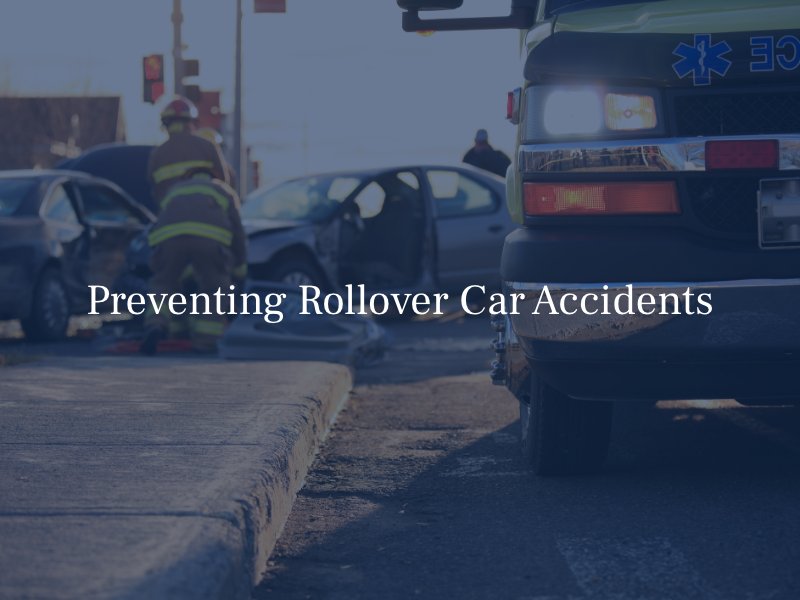How To Prevent Rollover Car Accidents
October 27, 2023 Posted In Car Accidents
A rollover accident is one of the most dangerous situations a driver can face. These incidents handled by our experienced Riverside car accident lawyers can lead to severe injuries or even fatalities. However, with the right knowledge and precautions, drivers can significantly reduce the risk of these collisions.

Maintain Proper Tire Pressure
Regularly check and maintain the correct tire pressure according to the manufacturer’s recommendations. Insufficient tire pressure can lead to reduced traction, increasing the likelihood of a loss of control and potentially resulting in a rollover. Adequate tire pressure is crucial for maintaining stability. This maximizes traction and grip, especially during sudden maneuvers or emergency braking situations.
Load Distribution and Securing Cargo
Always adhere to load limits set by the manufacturer and evenly distribute the weight of your cargo, and ensure that heavier items are placed lower and towards the center of the vehicle. Use appropriate restraints like straps or cargo nets to secure items, preventing shifting during transit. If cargo is not distributed evenly within the vehicle, it can lead to an imbalance. This can shift the center of gravity, making the vehicle more prone to tipping over, especially during sudden turns or maneuvers. Additionally, specialized truck accident lawyers in Riverside suggest that if cargo on a commercial truck is not properly secured, it can shift during transit. This sudden movement can destabilize the vehicle, especially in emergencies.
Mind Your Speed, Especially Around Turns
Avoid sharp turns at high speeds. When a vehicle takes a turn at high speeds, the centrifugal force acting on it increases. This force pushes the vehicle outward, away from the curve. If the speed is excessive, it can surpass the threshold at which the tires can maintain traction with the road. This results in losing control, potentially causing the vehicle to tip over. Additionally, the higher the speed, the more difficult it becomes for the driver to correct any oversteering or understeering, further escalating the chances of a rollover.
Routine Maintenance and Inspections
Regularly checking and servicing key components of a vehicle, such as the suspension, brakes, and tires, ensures they are in optimal working condition. A well-maintained vehicle is less likely to experience mechanical failures or malfunctions that could lead to a loss of control, especially during critical moments like sharp turns. Additionally, maintenance helps identify and rectify potential issues early, preventing them from escalating into more serious problems.
Driver Training and Experience
Driver training and experience are pivotal in mitigating the risk of rollover accidents, especially when it comes to operating large trucks. Proper training equips drivers with essential skills and knowledge, enabling them to drive large vehicles safely and effectively. Experienced drivers are also more adept at recognizing and managing potentially hazardous situations, such as sharp turns or adverse road conditions.
Utilize Electronic Stability Control (ESC) Systems
Vehicles equipped with ESC systems have an added layer of safety. These systems automatically intervene by selectively applying brakes to individual wheels and, in some cases, adjusting engine power. This corrective action helps counter oversteering or understeering, bringing the vehicle back on course.
Stay Vigilant in Adverse Weather Conditions
Poor weather, such as rain, snow, or icy conditions, diminishes road traction and visibility. In response, our Riverside personal injury lawyers recommend drivers to exercise extra caution, reduce speed, and increase following distance. Avoiding sudden maneuvers and maintaining a smooth, controlled driving style is also essential.
Avoid Distracted Driving
Avoiding distractions while driving is paramount. When a driver’s attention is diverted, even momentarily, they may fail to anticipate and react to critical situations, such as sudden turns or obstacles in the road. This loss of focus can lead to overcompensating or making abrupt maneuvers, increasing the risk of a rollover.